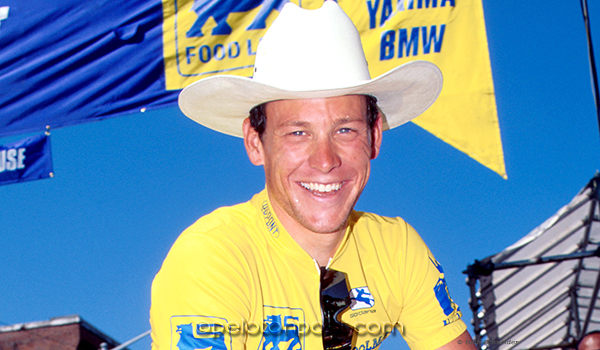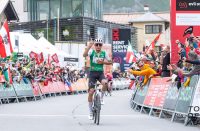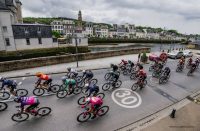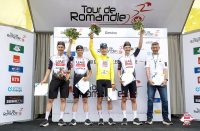This article was written by Sally Jenkins for the Washington Post
“By Sally Jenkins, Published: December 15
I like Lance Armstrong, have always liked him. Not the fairy-tale prince, but the real him, the guy with the scars in his head, both visible and invisible, the combative hombre who once crossed a finish line swinging his fists at another rider, the contradictory, salty-mouthed, anti-religious nonbeliever, who nevertheless restored a chapel. The man who tried to whip cancer fair and square, and did more good with his name and fortune than any athlete I’ve ever met.

I’ve searched high and low for my anger at Lance, and I can’t find it. It’s just not there. I checked — looked in every corner, and I’m empty of it. I’ve tried for weeks now to summon the moral certitude and outrage that others seem to demand, and I don’t have it, maybe because he’s my friend and co-author of “It’s Not About the Bike,” but also because my opinion of him was never based on what he did in a bike race in France 10 years ago. And while we’re on that subject, there is no question in my mind he was the hardest-working cyclist in the world, and for the life of me, I can’t find the competitive injustice in his seven Tour de France victories.
Maybe I’m not angry at Lance because, though I hoped he was clean, it’s simply not shocking or enraging to learn that he was like all the other cyclists who sought a medical advantage in riding up the faces of mountains. Or because I’ve long believed that what athletes put in their bodies should be a matter of personal conscience, not police actions — when we demand unhealthy, even death-defying extremes of them for our entertainment, it seems the height of hypocrisy to then dictate what’s good for them. Or because after reading the U.S. Anti-Doping Agency report, and more importantly the rider affidavits, what emerges is a portrait of a sport in which needles were so deeply embedded that the choice was simply to use them, or quit riding. And I don’t have it in my heart to condemn any of the athletes in it, much less Lance, son of a Kroger supermarket checkout girl,who had a singular talent and whose career option was to go home, and do what exactly?
Maybe I’m not angry at Lance because more informative than the USADA report was an ESPN interview with his former teammate Jonathan Vaughters, who observed: “There is the huge misconception, though, that this is about Lance. This is about a culture that Lance was a part of, and that he participated in . . . If you want people to be truthful and want to know what actually happened, as opposed to chasing ghosts for the next 10 years, then you have to let them know that we won’t chop your head off.”
aybe I’m not angry at Lance because I’ve decided that the smoldering wreckage of the bonfire that burned down Big Tex was wildly out of proportion to the offense. And because, much as I would have liked a personal or public confession from him, I suspect that he understood what the price of it would be, and found the stakes too high to call up his friend at The Washington Post and bring it all down on his head.
Maybe I’m not angry at Lance because, after reading the rider affidavits, I think it’s apparent that all of the people associated with him are responsible for themselves and their choices, just as I was. If Floyd Landis, Tyler Hamilton, Christian VandeVelde and Dave Zabriskie took EPO during the Tour de France, it wasn’t because Lance Armstrong shot them in their butts with it. I enjoyed and profited from my association with Lance when he was on top, and so did his fellow riders. Lance never made me write a single paragraph in “It’s Not About the Bike” or the sequel “Every Second Counts,” and the vast majority of them, I stand by as honest. Such as this one: “Cycling is so hard, the suffering is so intense, that it’s absolutely cleansing.”
Maybe I’m not angry at him because after reading the USADA report and the affidavits of the riders who spoke with USADA, I have some common-sense questions that preclude anger. Such as: Shouldn’t an organization with the initials U.S. in front of it have to follow due process? And: According to the affidavits, the U.S. Postal Team had a highly organized “doping” system in place long before Lance became a member of it, so why is he the target of this report? Or: The affidavits taken by USADA make it clear that while Lance refused to use HGH, Floyd Landis introduced it to younger riders, so why is the federal government considering giving Landis whistle-blower protection?
Maybe I’m not angry at Lance because for two decades now I’ve had serious questions about the wisdom and fairness of the “anti-doping” effort, which consists of criminalizing and demonizing athletes for what boils down to using medications without a prescription, as if they are heroin dealers. And I’m confused as to why using cortisone as an anti-inflammatory in a 2,000-mile race is cheating, and I wonder why putting your own blood back into your body is the crime of the century. And because there are offenses in sport that seem far, far worse to me. Like say, putting rapists on your college football team.
Maybe I’m not angry at Lance because I believe the athlete in him is a situational personality — a facet, not the whole — and I’m just as glad not to compete against that side of him, the one that invented a game called “fireball” when he was a teenager that consisted of soaking tennis balls in kerosene, lighting them on fire, and playing catch with them. “Let me give you a piece of advice,” his wife Kristin once said. “Don’t corner him. If you corner him, he’ll fight his way out.” Whose makeup seems to me Phaedra-like, drawn by two horses pulling in opposite directions. “I have loved him every minute of his life,” his mother once declared, “but God, there were times when it was a struggle.”
Maybe I’m not angry at Lance because I’ve never believed there was a more innocent sporting past, and I am not one of those people, unlike his prosecutors, who get nervous and angry when great athletes are too far removed from my own image of myself. And 25 years of writing about champions has convinced me that they are indeed, very, very different from you and me, and their qualities are often dark. And because “It’s Not About the Bike” tried to state that quite clearly.
Maybe I’m not angry at Lance because I don’t understand those people who are bitterly angry to discover that he is not Santa Claus, while ignoring the very real and useful presents he delivered. Not toys, not hagiography, but the simple yet critical lesson that a third medical opinion can save your life. Or that the more educated a sick person is about their disease, the greater their statistical chance of survival. Who not only preached those lessons, but built an organization through which anyone can get the information and education about cancer for free that he was fortunate enough to be able to afford. And who put his money and incalculable amounts of time where his mouth was, raising $500 million for research and donating $7 million of his own fortune.
Maybe I’m not angry at Lance because the guy I know lost his head to celebrity and ego at times, but he always, always kept his head on straight about cancer. “You don’t beat it,” he said. “You get very lucky and survive it. I don’t want anyone to think I beat cancer because I’m special.” And because I never once saw him too tired to engage with a cancer sufferer, or too vain to pull out his driver’s license and show the picture of himself bald, with no eyebrows, and two half moon scars in his scalp from brain surgery to remove tumors.
Or because he once said this, and I got to be the person who wrote it down and deliver it to others: “If children have the ability to ignore all odds and percentages, then maybe we can all learn from them. When you think about it, what other choice is there but to hope? We have two options, medically and emotionally: give up, or Fight Like Hell.”
Let me make something clear: I don’t just like Lance Armstrong for that. I love him for it.”




